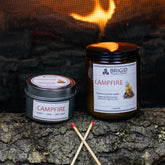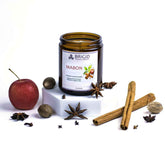The History of Ostara: Celebrating the Reawakening of Nature
The History of Ostara
Ostara falls on Thursday, March 20, 2025. For thousands of years, until the advent of modern agricultural practices, people across the world were dependent on the cycle of the seasons. Nowadays, globalism and advanced technology mean that you can find practically anything at the supermarket regardless of what season or region of the world is grows in, but this bounty would have blown the mind of anyone living more than a couple of centuries ago. As we explore the history of Ostara, imagine how today would look to a Stone Age farming family, working their soil with hand tools made of granite and wood.
As we saw in our post about Imbolc, winter has been a difficult time for much of the northern hemisphere for thousands of years. Once autumn had come to a close and the harvest festivals like Lughnasad and Samhain had been celebrated, people would settle in for the dark winter nights and simply try to hold on until warmer days. Yuletide festivals would help them through the bitter cold, but planting season would still be far off.
Ostara, the Second Spring
For the ancient Celtic people, it was Imbolc that marked the beginning of Spring, as opposed to Ostara. Even though the ground was still too cold to plant crops and lambing season would still be months away, it was the subtle appearance of growth that made them think of early February as a time of abundance: sheep would be preparing for their lambs, early flowers like heather would start blooming, and hardy plants like rosemary would begin putting out fresh green leaves.
For the official meteorological beginning of spring, however, they would have to wait it out until the Spring Equinox. It was on this day, falling between March 19th and March 21st, falls in between the Winter Solstice and the Summer Solstice. Today we refer to this day as Ostara, an Anglo-Saxon word that comes from the Germanic goddess of Spring, Eostre.
The Goddess Eostre: A Familiar Face
If the name Eostre sounds familiar, that's because it is, just like it looks, the basis for the word Easter. So why would we, a Celtic company, be interested in Eostre, a Germanic goddess? Because Eostre is in all likelihood a descendent of Heusos, the ancient Proto-Indo-European goddess of the dawn, a role which was given to Brigid as the people who would one day become the Celts left the Proto-Indo-European homeland.
In this way, the history of Ostara is a little like a continuation of Imbolc, Brigid's chief holiday. Both goddesses are bringers of abundance and protectors of newborn animals, extending their benevolence over people struggling through the often brutal and unforgiving weather of prehistoric northern Europe. We're more than happy to have another day to celebrate an important figure in Celtic spirituality.
The Celtic Equinox?
Despite a rather extensive search, we came away unclear about what the early Celts would have referred to the Spring Equinox as. Strictly speaking, in Irish, this would have been Alban Eilir, which means literally "the Equinox of Spring." Modern groups like the Order of Bards, Ovates, and Druids sometimes use this term interchangeably with Ostara, but strictly speaking, Ostara is a Germanic heathen word. Despite this, modern people of all walks of life have begun to embrace Ostara as a cross-cultural celebration of the Equinox.
Regardless of what they would have called it, the ancient Celts certainly would have celebrated the Equinox. To this day, many of the Celtic countries such as Ireland and Scotland have enormous stretches of rural, agrarian land, where the outskirts of towns give way to cattle pastures and rolling hills instead of suburbs. Throughout the history of Ostara and other Equinox celebrations, agrarian cultures have been closely tied to the changing of the season, with each Equinox, Solstice, and midpoint being celebrated as festival holidays.
Seasonal Affects on the Body
Thanks to the supermarket, seasons today may seem like nothing but changes in the weather and how much light there is. However, the changing seasons still have many effects on the body, such as negative impacts to the immune system, disrupted sleep, and mood changes, often referred to as Seasonal Affective Disorder. All of these are contributed to by a deficit in vitamin D, which the body produces on its own after exposure to natural sunlight.
In winter, with shorter days and a lot less sunlight, the body sometimes cannot produce enough vitamin D on its own to meet its daily requirement. One way to deal with is to take vitamin D supplements, or eat foods rich in vitamin D, such as fish, egg yolks, and mushrooms. Since sunlight is the body's natural catalyst, though, getting enough outside time is also crucial.
The Easter Connection
The history of Ostara isn't complete without a discussion of Easter. While their link isn't completely clear, it is almost certain that the early Church of Rome was involved. After the Eternal City fell to the Gothic hordes, such as they were, and the Western Empire collapsed into a gaggle of warring Germanic kingdoms, the Roman Church found itself in a precarious position: having only recently become the state religion of an empire that had just collapsed, the Church was once again among unfriendly pagan barbarians.
In those chaotic days, early Church officials worked hard to convert the Germanic kings, if only to try and stop the incessant wars which had broken out between them. Soon the kings coalesced happily around the idea of One True God, who could conveniently confer the title of One True King onto a sufficiently-pious Germanic king looking for an abundance of legitimacy in a land of Latin people.
One of the tools the early missionaries to the kings would use is a simple game of comparison: as the Germans had Yule, so did the Christians have the birth of Christ, thus proving the two were the same. Over time, the connection to the goddess Eostre faded, replaced with chocolate bunnies and plastic eggs filled with jelly beans, living testaments to her role as protector of the birth cycle.
How To Celebrate Ostara - Festivals, Rituals, and Ceremonies
The general theme of Ostara is rebirth and renewal, and is traditionally celebrated similarly to the modern holiday Easter. For personal observation, Ostara is deeply connected to the return of light to the world. Decorating with fresh flowers, painted eggs, and related iconography sets the tone.
Ways to Celebrate
There are many ways to celebrate Ostara and we cannot possibly name them all, but the most important rule is to make them personal and meaningful to you so that the holiday is as personally meaningful to you as possible. The following are a blend of traditional and modern ways to celebrate, and should be tailored to your personal style to make it unique:
Create Light
Lighting candles, such as our Ostara Premium Soy Wax Candle or having a bonfire, dedicated to whichever expression of the Spring calls to you, is a time-honored tradition. As with Imbolc, the theme of the dark days of winter fading into the lighter and warmer days of spring continues through Ostara.
Cook a Feast
Much like all of the high holidays of the Wheel of the Year, Ostara is one for feasting. The reader couldn't go wrong with a savory dish made of rosemary and potatoes, alongside a meat or protein of their choice. The bigger the dinner, the better; invite some friends over and get them involved, to feel the abundance that good food and good conversation brings with it. Bonus if you use local ingredients to focus on the local harvest!
Get Outside and Enjoy Nature
Connecting with your world in the present moment is a great way to celebrate Ostara, and nothing is better than taking a hike. Nature walks are great for connecting to the natural world - identifying local plants and noticing new growth poking through the earth, or even do some guerilla gardening by responsibly harvesting seeds (be sure it's allowed - and never do this in a State or National park!).
Planting seeds is another great way to celebrate, as it's about the perfect time for starting seeds indoors or getting direct-sown seeds in the ground while there are still a few weeks of cold weather left to wake them (depends on the type of seed, of course). It is also about the perfect time for planting potatoes, which are often said to be ideal to start on St. Patrick's Day.
Make DIY Decorations or Buy Ostara Decor
Decorating eggs is one of the most ancient and traditional ways to celebrate Ostara, along with creating spring-themed alters or displays that bring to mind fertility (rabbits), rebirth (eggs and baby chicks), and light (candles or other light sources).
Crafts, Art, and Creation
Knit, weave a basket, or make pottery from clay - whatever your skill, profession or hobby, there is a way for you to personalize this day's celebrations. Creativity is key, so if diamond painting is your passion - Ostara is a great day to bust out that wax pen.
Self-Care and Gift Giving
Of course self-care and connecting with those you love, including yourself, is part of Ostara's theme. Our Ostara Collection features our signature Ostara fragrance of heather, rosemary and black pepper. We recommend trying our natural body lotion, goat's milk soap, fragrance rollers if you are looking for ways to express the themes of Ostara. We make all these products ourselves by hand, with the intention of helping you celebrate for a meaningful and engaging Ostara holiday.










